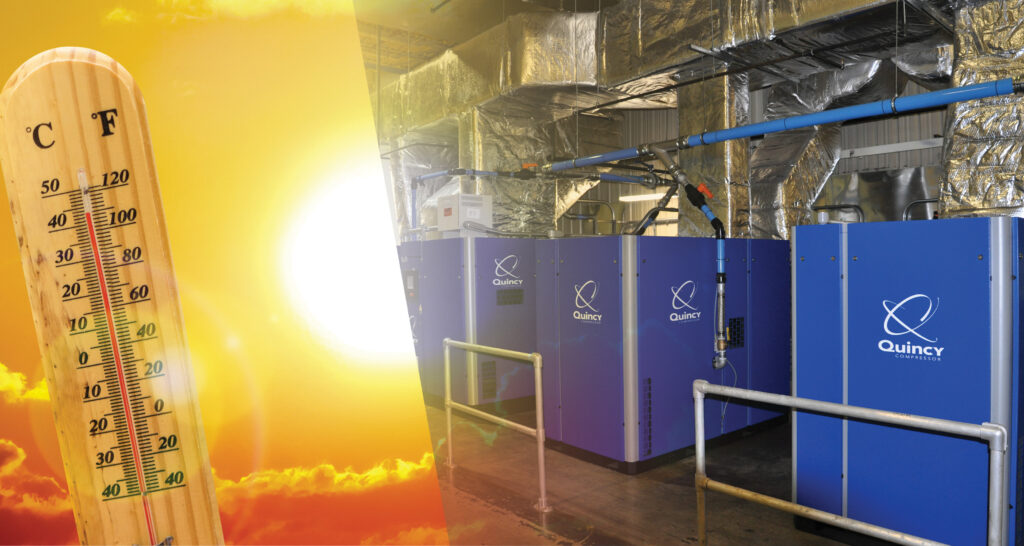May 1, 2025
Hot Weather vs. Air Compressors
SHARE THIS POST

When the warmer weather hits, it is important to recognize how heat can impact performance and endurance of air compressors. High temperatures and increased humidity can lead to numerous challenges. This will include overheating, parts failure and reduced efficiency. When you understand these issues and execute the measures you can ensure your compressor operates efficiently throughout the warmer months.
Overheating and System Shutdown
High temperatures can lead to compressor overheating. Most compressors are featured to have safety features that will automatically shut down to prevent damage when temperatures reach the limit. Including, frequent shutdowns can result in productivity lost and increase maintenance costs.
Component Wear and Reduced Efficiency
Hotter air is less dense, leading to reduced airflow through the system’s intake. This reduction can force the compressor to work harder to achieve the desired output, increasing energy consumption and accelerating wear on internal components.
Moisture in the System
For the southern regions with high-humidity, increase moisture in the air intake can lead to water accumulation within the compressor system. This moisture can cause corrosion, reduce efficiency, and potentially lead to system shutdown if it’s not properly managed.
Combat the Challenges
Here are the following strategies to consider
- Ventilation – Make sure your compressor room is well-ventilated to reduce the heat. Having ducts to redirect hot air can prevent heat buildup and maintain optimal operating temperatures.
- Regular Preventative Maintenance – Perform routine checks on filters, vents, and cooling systems. Clean filters and ensure vents are free from blockage to maintain proper airflow.
- Monitor Temperature – Monitor your compressor’s temperature levels and adjust it to a lower temperature setting needed to prevent overheating.
- Plan for Seasonal Change – Before and after of summer, inspect and clean coolers, check the oil and lubricants levels, and determine the overall condition of the compressor to prepare for increased demands.
By understanding the effects of summer heat on air compressors and implementing these proactive measures, you can maintain efficient operation, extend the lifespan of your equipment, and minimize unexpected downtime during the hotter months.
Search
Categories
Get a consultation
Related Posts
The 3 Distinct Advantages of Hydraulic Powered Pumps
Recently, C. H. Reed helped a major printing operation install a new ink pumping system. The new system needed to transfer four colors of high viscosity, heat-set ink to their three presses, drawing the ink from multiple 5,000…
Simple Ways to Reduce Waste in Your Spray Finishing System
In today’s demanding manufacturing landscape, it can be convenient to adopt a “cut-costs-at-all-costs” mentality, justifying questionable means for the sake of leaner production, a lower bottom line and increased profitability. Regrettably, those efforts can interfere…
What You Need to Know About Air-Powered Pressure Washers
Pressure washers are great solutions for your average cleaning applications, but what tool do you turn to for your more challenging applications? There are many instances where it is simply impossible to use a traditional…